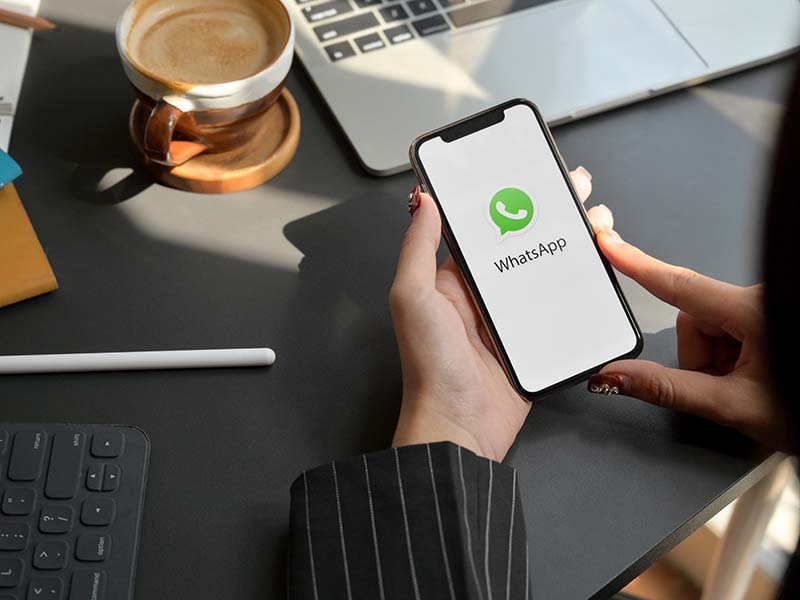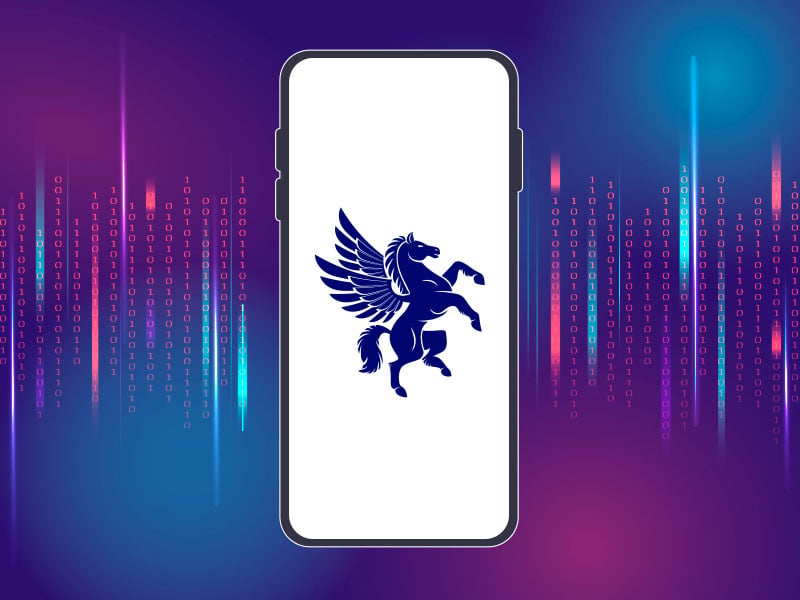Detected a Trojan that emulates the WhatsApp account and fraudulently manages subscriptions to payment sites
17/10/2022Kaspersky researchers has reported that YoWhatsApp advertised on Snaptube and Vidmate, two of the most popular download platforms at the moment, is actually a Trojan capable to issuing paid subscriptions and stealing WhatsApp accounts. YoWhatsApp would act as a mod of the original messaging program, offering new functions that the official service does not allow, such as wallpapers, personalized fonts for chats and password-protected access to conversations, .... As Kaspersky researchers have explained, when a user installs YoWhatsApp on a device, it’s forced to log in to they real application account, and in this moment, Triada Trojan is activated, downloaded and executed on the terminal. Once this is done, the Trojan is capable of accessing the user's real WhatsApp account credentials, steal all the data, having already detected unauthorized subscriptions to paid subscriptions. Kaspersky recommends to install, only, Apps from official stores and reliable sources and they have insisted on the need to check always the permissions granted to each application. Installing an antivirus is another recommended measure.
[ ... ]A fraudulent email simulates a WhatsApp Backup and installs a Trojan
29/09/2021WhatsApp users, Internet users' associations and also some police officers have alerted through social networks about a new virus that arrives by email with the subject "Backup of WhatsApp messages. This email offers a link to download the history of conversations in this application, which should not be clicked if you don’t want to install a Trojan on your device. The message arrives with the same appearance and usual colors of WhatsApp and provides supposed information about the number of messages deleted, restored and read through the application, looking like a real information and causing confusion in the victims If we receive the message but we don`t use the link, the Trojan will not run and we only need to delete the message to get rid of the virus. But if we have opened the link, or downloaded and opened the zip file that arrives in some emails, then the device will be infected, and we will need to use an antivirus to detect the malicious software and destroy it.
[ ... ]Interpol opens its first office in the Metaverse
07/11/2022Interpol, the International Criminal Police Organization or International Police, has presented its first office in the metaverse through which they intend to improve the fight against crime in the digital universe. The digital police station, which is a copy of the General Secretariat of Interpol in Lyon (France), will offer training for investigators and police officers and will allow the collaborators of this international organization to interact through their avatars, without geographical or physical limits. The inauguration of this new virtual center had been accompanied by the announcement of the creation of a group of Interpol experts that will advise police forces around the world about the risks on the global stage. Also, it has been announced that the International Police Organization has joined Meta, Microsoft and other technology giants to define the metaverse and protect communities from cybercrime, including globally recognized and criminalized crimes, such as sexual harassment, 'phishing', financial fraud or 'ransomware', among others. The objective of this joint work, they explained, is to create regulatory frameworks "and eliminate future criminal markets before they are fully formed." According to a study by the technology company Gartner, in over three years, in 2026, one of four people will spend at least one hour a day in the metaverse to work, shop and interact with other users.
[ ... ]Ip Location, the tool to know my ip location
If you need to check what location your internet provider is sharing with the websites you visit, with our IP locator you can instantly geolocate your IP address or any other that you enter manually. To geographically locate the IP address, you only need to be connected to the internet. If you use VPN software or connect through a proxy to locate IP address you can also use our tool. None of the data generated by the IP locator is stored in our system. @Mapa@ How can I hide my IP address so that it cannot be traced? To anonymously browse the Internet and avoid being located through the IP of your connection, there are two basic ways to do it. The first is to hide IP so that no one will be able to track our presence on the network or access our browsing data and the second is to change IP and browse through another IP address whenever we need to. Why do I need to locate my IP geographically? Locating your IP geographically is the best way to find out what data our ISP shares about the location of our connection. Depending on this location. a website whose URL is ".com" will change to "/es" if we connect from Spain, for example, and some tasks related to the sending of forms will be simplified, as they will be automatically pre-filled with some data such as your country or city, depending on your geolocation IP. As users with a geolocation IP tool such as the one we offer in Cuál es mi IP, we can manually enter an IP address and find out, for example, from where we have received a fraudulent email, if we have had access before, of course, to the IP address involved Can anyone find out my home address with an IP geolocation tool? By using a tool to locate an IP address, you can trace the IP and geolocate it through coordinates on the map, but the specific postal address is never provided. This is because our IP address is not ours, but rather our Internet Service Provider's (ISP's). So what data can they find out about me with IP geolocation? When locating the IP geographically. the only information about us that is provided is the country and city from which we are connecting, since the GPS coordinates of altitude and latitude that are shown correspond, in reality, to those of the headquarters of the company that is offering us the Internet connection service. The reason behind this is that all data related to the actual geographic address of the device used to access the Internet, i.e. our router, is not public and belongs to our ISP, which can only disclose it by court order. Why are companies interested in locating my IP address geographically? Information is power and for a company to know from where its potential customers connect is an important advantage to design marketing strategies aimed at the customer profile of a particular geographical area or country. In addition, in terms of anti-fraud, e-commerce companies can improve card payment security by identifying payment attempts from suspicious IP addresses. What is an IP address? An IP address is a special numerical combination assigned to an internet-connected device to be identified on the network. All intelligent devices need an IP address to access the Internet and interact on the network. Each device connected to the Internet has its own an individual IP address. When we access the Internet, the servers recognize our device through its IP address, allowing the two-way communication with the recipient. As we are identified with our IP address, the rest of devices can order a return response, without mistake the sender. Making a simile, an IP address would be the address that we use to write on the back of an envelope. This information identifies us as issuers and also as recipients of the return answer. To make possible this data exchange, the IP protocol was established as a set of universal rules for all the Internet operations. That means that all devices connected to Internet or to a home network, "speak" the same language and they are able to communicate each with the others. There are two types of IP address, the external IP and the local IP: • The external IP or public IP is the numerical combination address assigned to us by our Internet service provider (ISP). This public IP identifies us as Internet users when we are connected. If you want to find the IP of your computer, your tablet or your Smartphone, you can find out this immediately by accessing the home page of “What is my IP” or using our speed test service that, in addition to this information, will inform you about the quality of your Internet connection. • The local IP address or internal IP is the one the router assign to all the devices connected to him and identifies each of these devices, individually, in the home network. How to locate an IP address? If you want to know how to find out where an IP address is from, you should know that it is not always easy to find out the IP origin of a connection, because there are different systems to hide the IP. Some users use these systems for security reasons or to simulate, for example, their IP location in another place and thus have access to Internet services not enabled in the place where they are located. Now, if the user does not use any resource to mask the IP, find out the IP of the computer or any other device connected, for example, to our website, it is as simple as use IP geolocation services such the one offered in “What is my IP?” and you will immediately find out the IP origin of any computer that you are interested in track. Knowing the IP location of our clients is an advantage when we are designing, for example, our marketing strategies and a good tool, also, to improve network security, as it allows us to locate suspicious IP addresses. In addition, with the IP geolocation service you can also verify the location that your Internet provider shares about you. It should be clarified that this location provided by IP geolocation services is never the specific address of our home or where we are located. The data actually are from the operator node in our area that is offering us the connection service to the internet network Therefore, the geolocation information will be the country and city from where the connection is made, but not the address where the user is located, because this specific tracking of the user address is protected by law and this data can only be provided by court order.
[ ... ]The Spanish Organization of Consumers and Users has denounces Apple for the planned obsolescence of the iPhone6
25/05/2022The Spanish Organization of Consumers and Users (OCU) has filed a class action lawsuit against Apple for the planned obsolescence of their iPhone 6 and has agreed to pay the costs of the trial to the 400,000 affected in Spain. The OCU considers this planned obsolescence a deceptive commercial practice that violates consumer protection regulations and demands compensation for Spanish users for an amount that ranges between 99 and 189 euros. This figure comes from the sum of the amount of the battery (between 29 and 89 euros, depending on whether or not the replacement plan was accepted), plus 10% of the purchase price of the mobile (between 699 and 999 euros, depending on the model). According to the OCU lawsuit, Apple has acted fraudulently by hiding information from users, and considers that the technology company updated the software in the different models of the iPhone 6 to mask the performance problems of its batteries, knowing that this would cause a slowdown. and loss of phone performance. This practice, said OCU, conditioned consumers to renew their iPhones, causing them an economic loss that amounts to between 40 and 80 million euros, approximately. The complaint against Apple is one more action from the OCU to encourage affected users to fight against planned obsolescence.
[ ... ]How to know if Pegasus has infected our mobile
05/05/2022The news of recent weeks, in which it is claimed that the Pegasus espionage program has been used to enter the mobile devices of Spanish politicians, has put a lot of people on alert. Pegasus is a malicious software that, once introduced on a device, has the ability to collect information and transmit it to an external entity without the consent or knowledge of the owner of the device, be it a mobile phone, a computer or a tablet. Pegasus also erases its trail after it is installed. Among its main features, it also stands out that Pegasus is capable of detecting who the owner of the device has been with. Pegasus also, can send and recive messages autonomously and recording conversations by manipulating the attacked mobile, computer or tablet. The two ways that this spy program uses to enter on a devices is through an SMS or a fraudulent link and, according to experts, despite the fact that it is a very difficult spyware to detect, there are some signs that can make us suspect that we have been infected. Overheating or slowdown of the system are two of the main ones, but also the fact that the battery life is decreasing or that there is excessive data consumption when we are not using the device. How to make it difficult for Pegasus To try to avoid being infected by Pegaus or by any other malware, the director of Systems Engineering at Fortinet from Spain and Portugal, José Luis Laguna, in statements collected by Europa Press, recommends taking extreme precautions and a make a double-checking when personal and confidential information is provided. In addition, the Fortinet expert explains that instead of clicking on the link that we have received, to verify that it is legitimate, it is recommended to write the address of the site in the web browser, even though this means taking an additional step and not accessing directly to this service. Using protection 'software' based on behavior - EndPoint Detection and Response (EDR) -, keeping the system updated, avoiding public Wi-Fi connections and checking the permissions granted to applications, are other precautions that are also recommended.
[ ... ]







